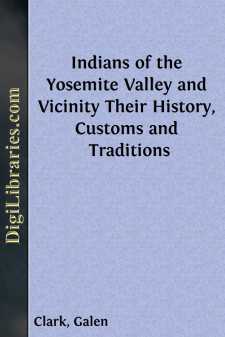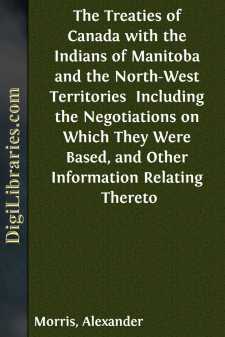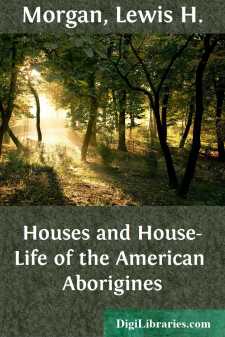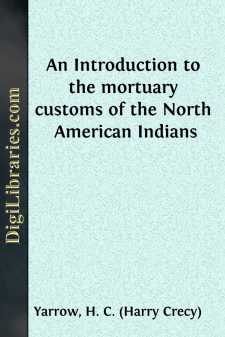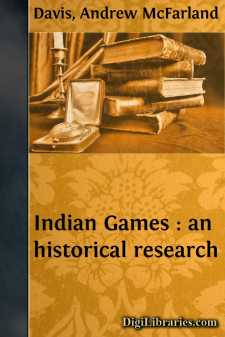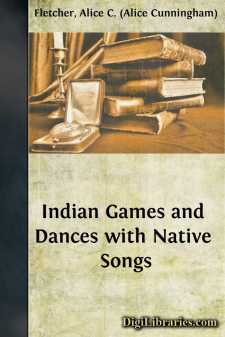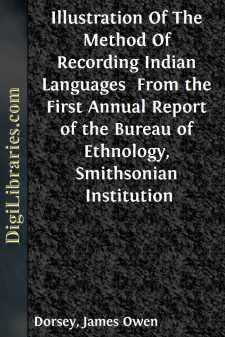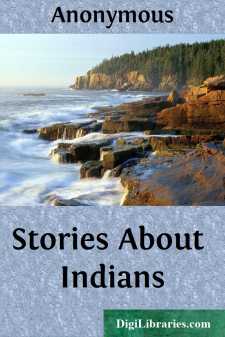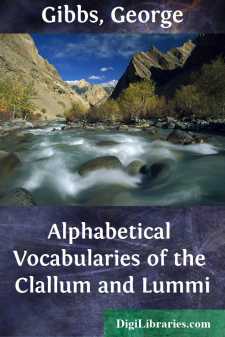History
- Africa 30
- Americas (North Central South West Indies)
- Ancient 68
- Asia 58
- Australia & New Zealand 8
- Canada 41
- Caribbean & West Indies 1
- Civilization 20
- Eastern Europe 12
- Europe 310
- Expeditions & Discoveries 60
- General 77
- Historical Geography 1
- Jewish 9
- Latin America 3
- Medieval 8
- Middle East 13
- Military 248
- Revolutionary 8
- Study & Teaching 5
- United States 353
- Western Europe 56
- World 13
Americas (North Central South West Indies) Books
Sort by:
by:
Galen Clark
Chapter One. EARLY HISTORY. During the past few years a rapidly growing interest in the native Indians has been manifested by a large majority of visitors to the Yosemite Valley. They have evinced a great desire to see them in their rudely constructed summer camps, and to purchase some articles of their artistic basket and bead work, to take away as highly prized souvenirs. They are also anxious to...
more...
by:
Alexander Morris
INTRODUCTION One of the gravest of the questions presented for solution by the Dominion of Canada, when the enormous region of country formerly known as the North-West Territories and Rupert's Land, was entrusted by the Empire of Great Britain and Ireland to her rule, was the securing the alliance of the Indian tribes, and maintaining friendly relations with them. The predecessors of Canada--the...
more...
by:
Lewis H. Morgan
PREFACE. The following work substantially formed the Fifth Part of the original manuscript of "Ancient Society," under the title "Growth of the Idea of House Architecture." As the manuscript exceeded the limits of a single volume, this portion (Part V) was removed, and having then no intention to publish it separately, the greater part of it found its way into print in detached...
more...
The mortuary customs of savage or barbaric people have a deep significance from the fact that in them are revealed much of the philosophy of the people by whom they are practiced. Early beliefs concerning the nature of human existence in life and after death and the relations of the living to the dead are recorded in these customs. The mystery concerning the future love for the departed who were loved...
more...
LACROSSE. In 1667, Nicolas Perrot, then acting as agent of the French government, was received near Saut Sainte Marie with stately courtesy and formal ceremony by the Miamis, to whom he was deputed. A few days after his arrival, the chief of that nation gave him, as an entertainment, a game of lacrosse. [Footnote: Histoire de l'Amerique Septentrionale par M. de Bacqueville de la Potherie, Paris,...
more...
INTRODUCTION The adaptations from Indian ceremonies and sports here offered will enable those who take part in them to follow in happy mood some of the paths of expression that were opened long ago by thoughtful men and women as they lived, worked and played on this land in undisturbed intimacy with nature. Some of the thoughts bred of this intimacy find their expression in these dances and games, and...
more...
TRANSLATION. Once upon a time the Rabbit dwelt in a lodge with no one but his grandmother. And it was his custom to go hunting very early in the morning. No matter how early in the morning he went, a person with very long feet had been along, leaving a trail. And he (the Rabbit), wished to know him. "Now," thought he, "I will go in advance of the person." Having arisen very early in the...
more...
by:
Anonymous
HE Indians were formerly lords of the soil we now occupy, and obtained a subsistence principally by hunting and fishing. They generally lived in villages, containing from fifty to five hundred families. Their houses, called wigwams, were usually constructed of poles, one end being driven into the ground, and the other bent over so as to meet another fastened in like manner; both being joined together...
more...
CATALOGUE OF LINGUISTIC MANUSCRIPTS IN THE LIBRARYOF THE BUREAU OF ETHNOLOGY. By James C. Pilling. Mr. Henry R. Schoolcraft, while engaged in the preparation of his work—"Information respecting the History, Condition, and Prospects of the Indian Tribes of the United States"—sent to various persons residing among the Indians a "Comparative Vocabulary of the Languages of the Indian Tribes...
more...
by:
George Gibbs
PREFACE. The tribe of Clallams, as they are usually called by the residents of Washington Territory—by the neighboring Indians named S'klal´am, and denominated by themselves NÃ
«s-klái yÃ
«m—inhabit the southern shore of Fuca Strait, from about the OkÃâ¢ho River on the west, to Port Townshend on the east, bordering in the first direction on the Makahs, sometimes called...
more...


